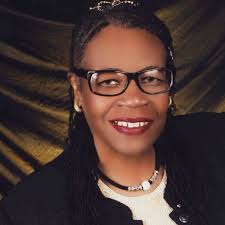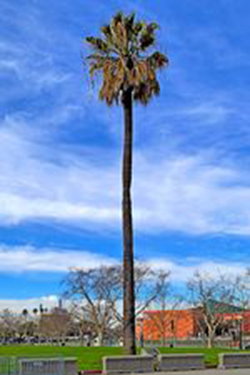
By Darlene Donloe
Contributing Writer
Food Forward has been helping to alleviate food insecurity in Southern California’s most vulnerable communities since 2009.
The organization fights hunger and prevents food waste by rescuing fresh surplus produce and connecting the abundance with people experiencing food insecurity and inspiring others to do the same.
Food Forward has recovered and distributed enough produce to provide nearly 250,000 people with their daily recommended servings of fruit and vegetables.
During COVID in 2020, more than 62 million pounds of produce was enough food to provide the U.S. Department of Agriculture-recommended serving of fresh fruits and vegetables to nearly 200,000 people each day. It was a 135% increase over 2019 volumes, 2.4 times as much as the organization recovered and distributed in 2019.
In 2019, pre-COVID, Food Forward distributed more than 26 million pounds of produce, enough food to provide the USDA-recommended serving of fresh fruits and vegetables to over 82,000 people each day.
With a budget of $6.7 million, costing eight cents in operational costs to recover and distribute one pound of fresh produce to communities 100% free of charge, Food Forward, which works with about 200 agencies, recovers produce across eight California counties that include Los Angeles and Ventura, along with six adjacent states and tribal lands.
It’s a three-prong, business-to-business model designed to have maximum effect.
“There are three different programs,” said Nkemdilim Nwosu, Food Forward’s director of communications. “Our partners get the food from us and get it into their communities. That way, we’re able to touch so many communities.”
The first is Backyard Harvest, started in 2009, which is driven by volunteers who actually pick up the fruit from private properties that have fallen from someone’s trees in their yard. It includes citrus, persimmons, avocados, pomegranates, guavas and more.
There is also a Farmer’s Market Recovery program launched in 2012, also volunteer driven which involves recovering the surplus fruits and vegetables after the market has closed. A single market can yield more than 2,000 pounds of seasonal produce.
In 2014, a Wholesale Recovery program began where tons of produce is acquired and put in a refrigerated warehouse. Food Forward’s staff rescues fresh fruits and vegetables from wholesale vendors by the truckload to prevent unnecessary waste.
“It goes to the warehouse for our relief partners,” said Nwosu, a UCLA graduate. “We reduce food waste. It’s produce that would have gone to waste. We are building healthy communities. It’s two-fold. It’s environmental.”
The problem with food insecurity is nationwide.
“One in five people is food insecure,” Nwosu said. “It’s not a joke. It needs to be addressed. The face of hunger changes. There isn’t one face of hunger. Everyone’s life circumstances can happen quickly. It’s many faces. It can be any one of us at any point in our lives.”
While one in five people is food insecure, Nwosu pointed out that at the same time, 35% of the food produced in the U.S. is unsold or uneaten each year, amounting to an annual loss of $408 billion to the economy.
Nwosu, who joined the organization in January 2022, did so because she “always wanted to do mission-related work.”
“I made it a priority to do good work in the community,” said Nwosu, who worked in nonprofits within the entertainment industry prior to joining Food Forward. “Food Forward was fighting food insecurity and it was mission-related. This isn’t an agency or organization problem.”
Nwosu said everyone “can get involved and do something to help.”
“It’s important that people take action,” she said. “Invest in long-term practices. Get involved. Take some form of action. Volunteer. Get more informed on what’s happening, and donate.”
Nwosu describes Food Forward as having the most passionate people when it comes to fighting food insecurity.
“We do it in a wise way,” said Nwosu, a Los Angeles native. We want to do it smart and help the planet. We have a community of mission-related individuals.”
Food Forward’s model is plant-based.
“We do healthy food,” Nwosu said. “We don’t deal with meat or dairy. The food we distribute is plant-based.”
While the pandemic emphasized food insecurity nationwide, Nwosu said way before COVID it was already an existing problem.
“The problem is access,” she said. “It’s all about access. It’s how the food system has been shaped. It’s about not having access to healthy produce. It’s about how many grocery stores a community has access to. Are the stores getting healthy produce?”
COVID revealed a whole new wave of people who had fallen victim to food insecurity.
“I was not surprised at who needed access to fresh food,” Nwosu said. “I’m aware that it exists. I grew up in South L.A. I’m surprised by how many partners we’re serving. Not surprised that there is a need.
Food Forward was launched by Rick Nahmias, the founder, and CEO.
Nahmias noticed that some of his neighbors who had trees with fruit had a lot of it drop to the ground and rotten. He mobilized some volunteers to recover the fruit and Food Forward was born.
Before founding Food Forward, Nahmias, who believes access to healthy, fresh and nutritious food is a human right, was an award-winning photographer and writer who focused on the faces and stories of marginalized communities.
His formal training as a cook, along with his exploration of California’s agricultural workforce in his body of work entitled “The Migrant Project: Contemporary California Farm Workers” gave him a deep appreciation of and involvement in both the gourmet cooking and food justice worlds.
“He is passionate and hands-on creative,” Nwosu said. “He’s always looked at the problem of food insecurity as hopeful. We all have to work together. We want to build healthy communities. It’s not something one organization can do. We all have a hand in this. We can all move that needle.”
Nwosu is optimistic when it comes to alleviating food insecurity.
“I’m hopeful because there are organizations that are committed,” she said. “I do understand there has to be a clear investment across the board. We need policies to shift and move the needle. I’m hopeful because people are passionate. There is a collective effort across the board and a government lens to it. We have multiple partners. One organization can’t do it. There is still a lot of work to do.”
“Making a Difference” is a regular feature profiling organizations that are serving their communities. To propose a “Making a Difference” profile, send an email to newsroom@wavepublication.com.
Darlene Donloe is a freelance reporter for Wave Newspapers who covers South Los Angeles. She can be reached at ddonloe@gmail.com.












